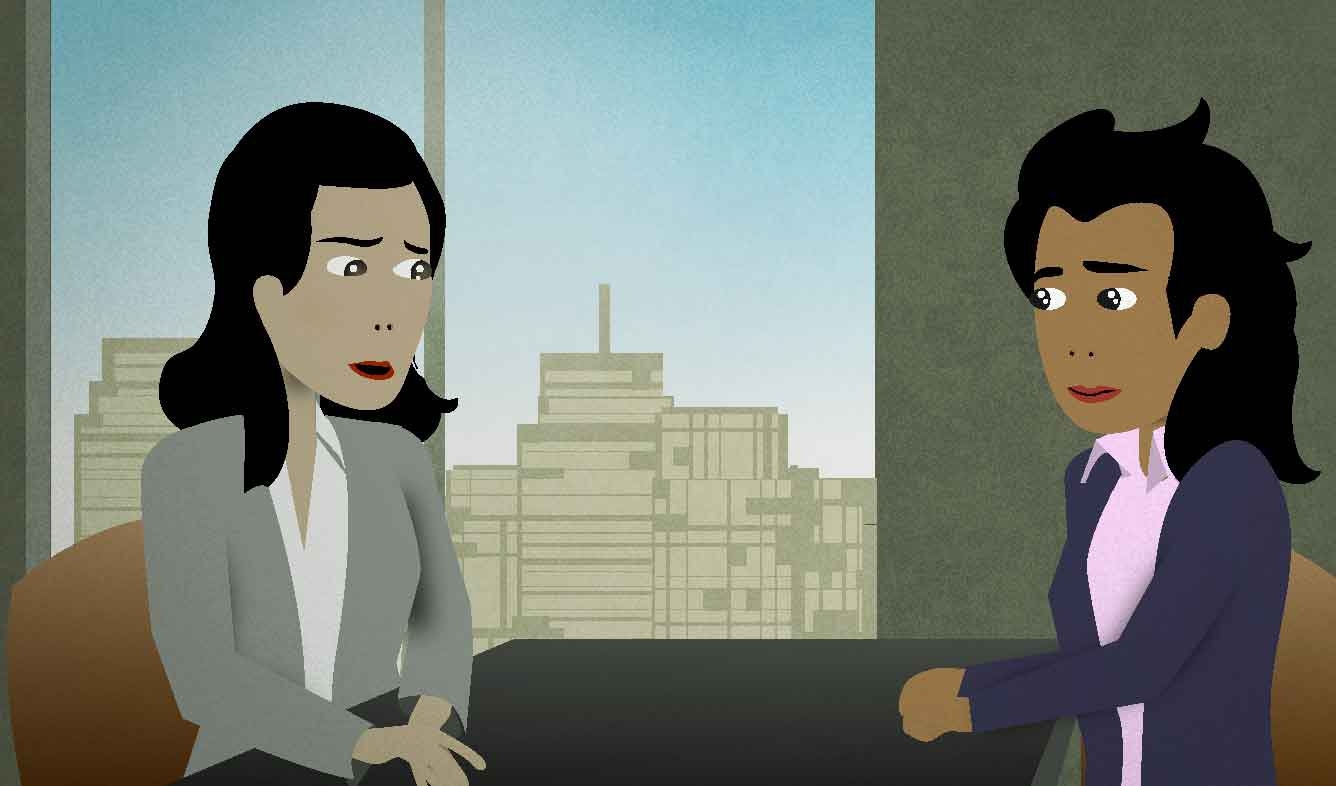“Meliana, I'm afraid I have some bad news.”
One of your biggest clients has decided to stop buying from you. You have to tell your boss. You prepare her for the news at the beginning of your conversation.
Meliana, I'm afraid I have some bad news.
Want Video and Sound? Follow us on YouTube

I'm afraid (clause)
Use this phrase when you have to give someone information that they won't like. For example, a waiter can say this to a customer:
I'm very sorry, sir, but I'm afraid we're all out of the salmon.
You can use this phrase to say "no" to a request:
A: Excuse me, can you spare some change?
B: I'm afraid not.
"I'm afraid..." is a little bit formal.
Notice that this phrase doesn't actually mean that you're frightened; it's just a polite way to show that what you're going to say will be disappointing to the listener.
I have some bad news.
This is a phrase that you say to someone, before you tell them about something negative. For example, a manager can tell an employee that another employee was fired:
Hey, listen. I have some bad news. We had to let Bradley go today.
The phrase "I have some bad news" is appropriate for serious problems like:
- someone losing their job
- getting in an accident
- not getting selected for a job, a school, an award, etc.
- losing money
- the death of someone you don't know well
But it's not strong enough for really bad events, like the death of a close friend or family member. In that situation, phrases like these are better:
Lana, I have some horrible news. Aunt Coco was killed in a car accident.
A: What's wrong?
B: Something terrible has happened. Jana was shot.
